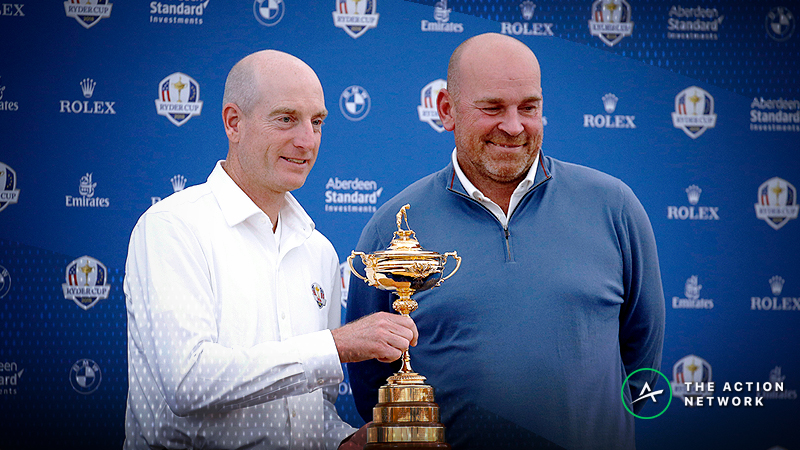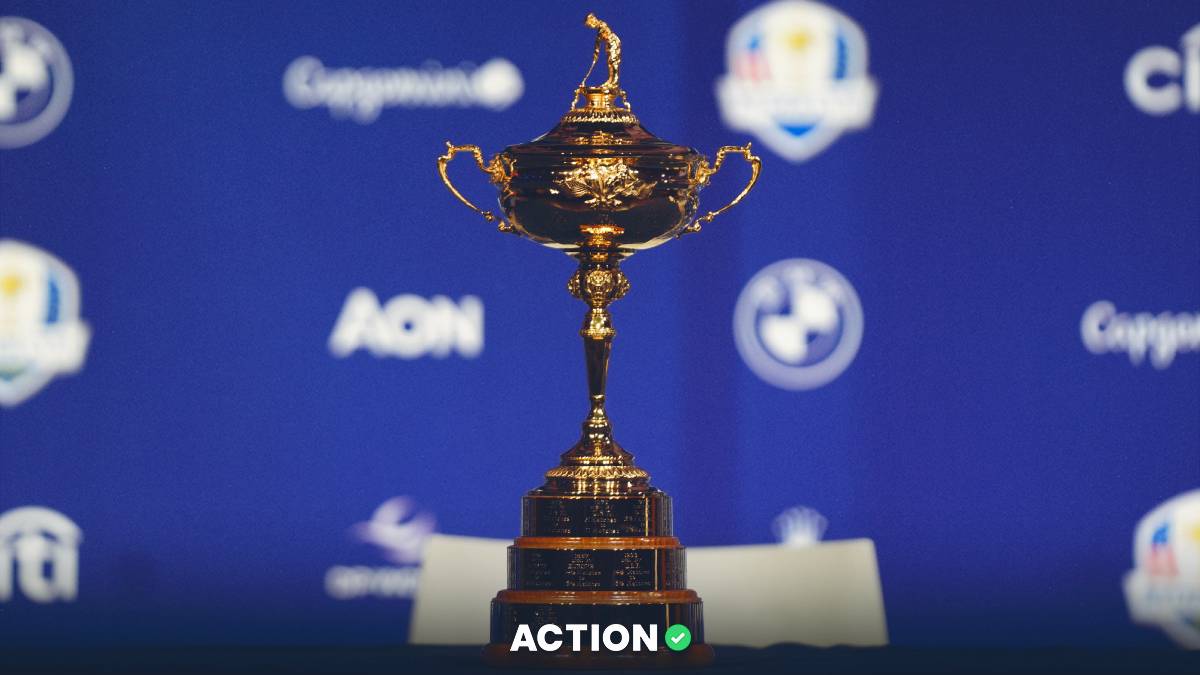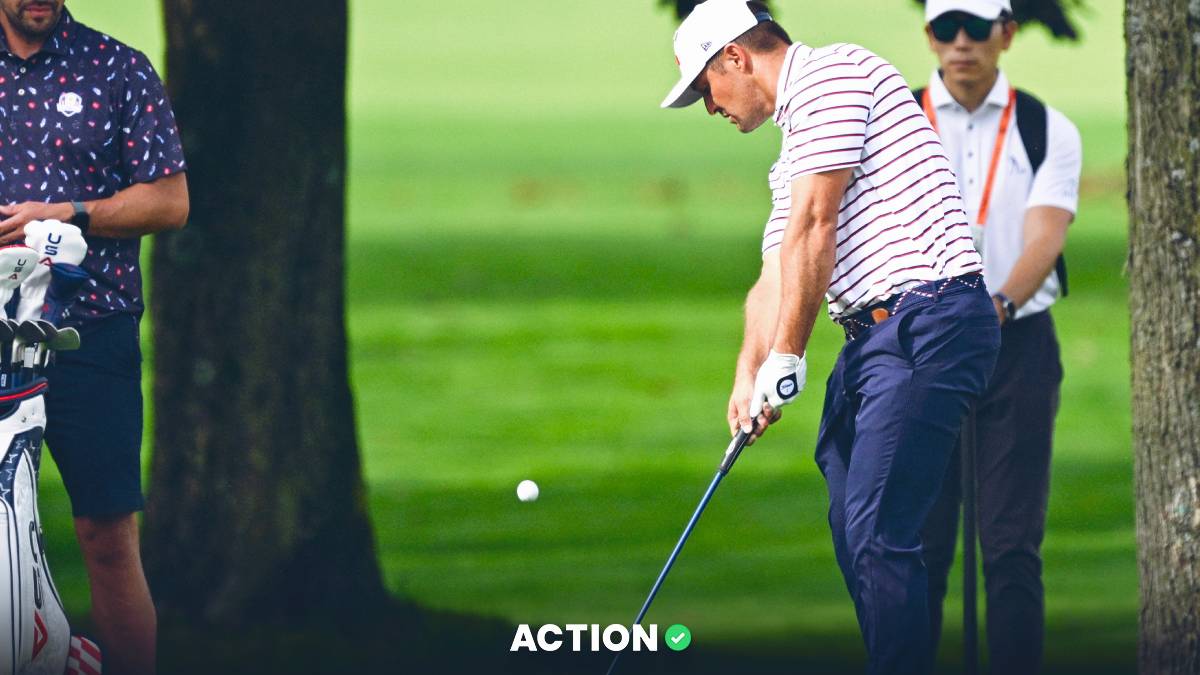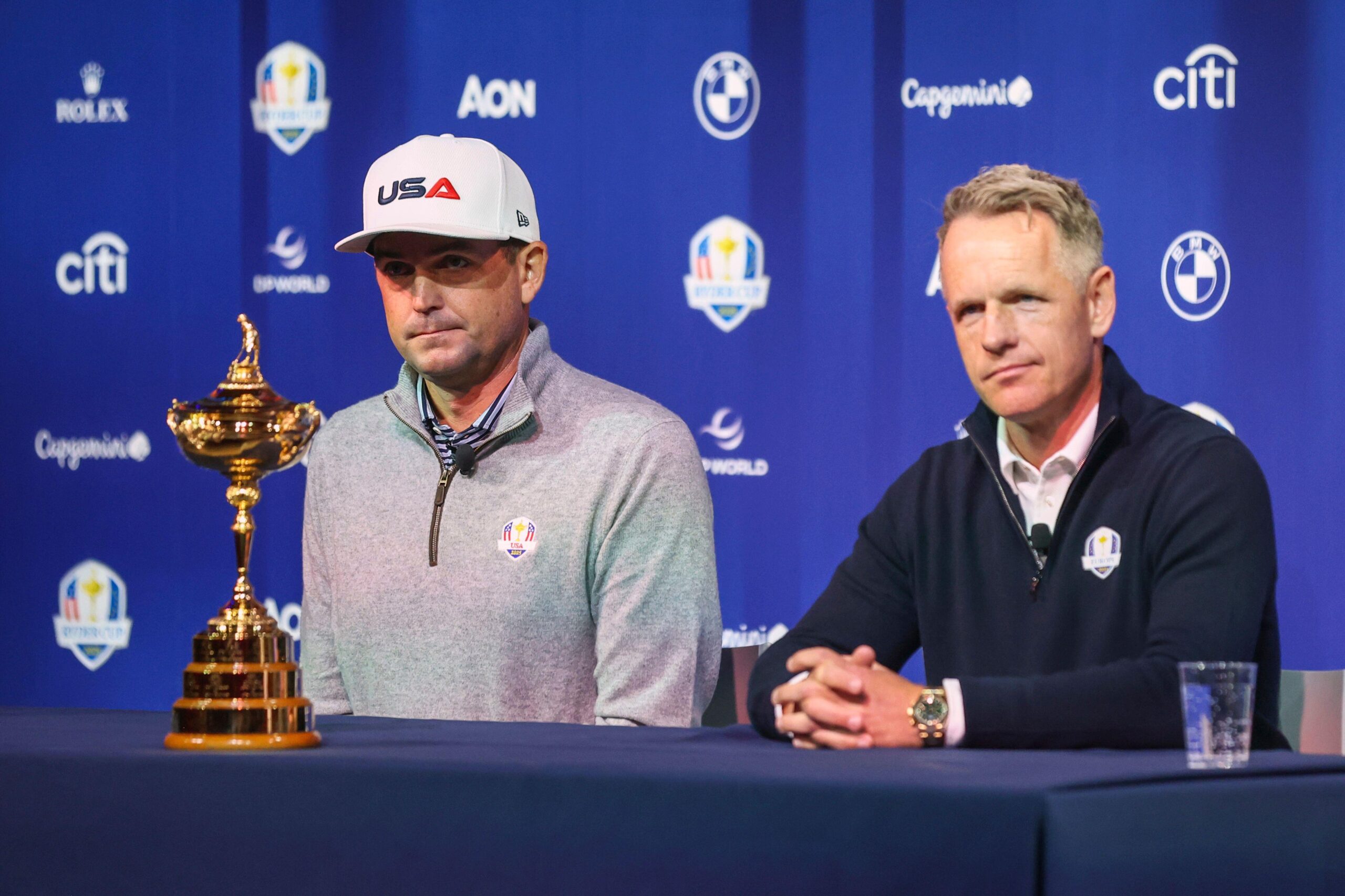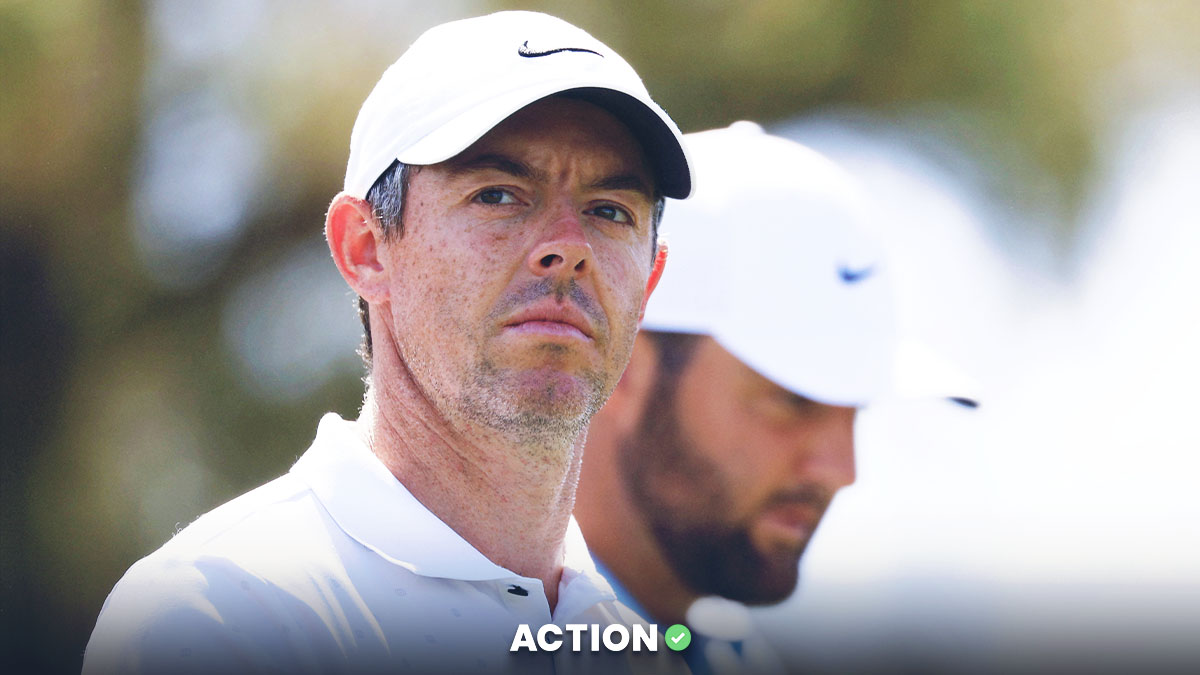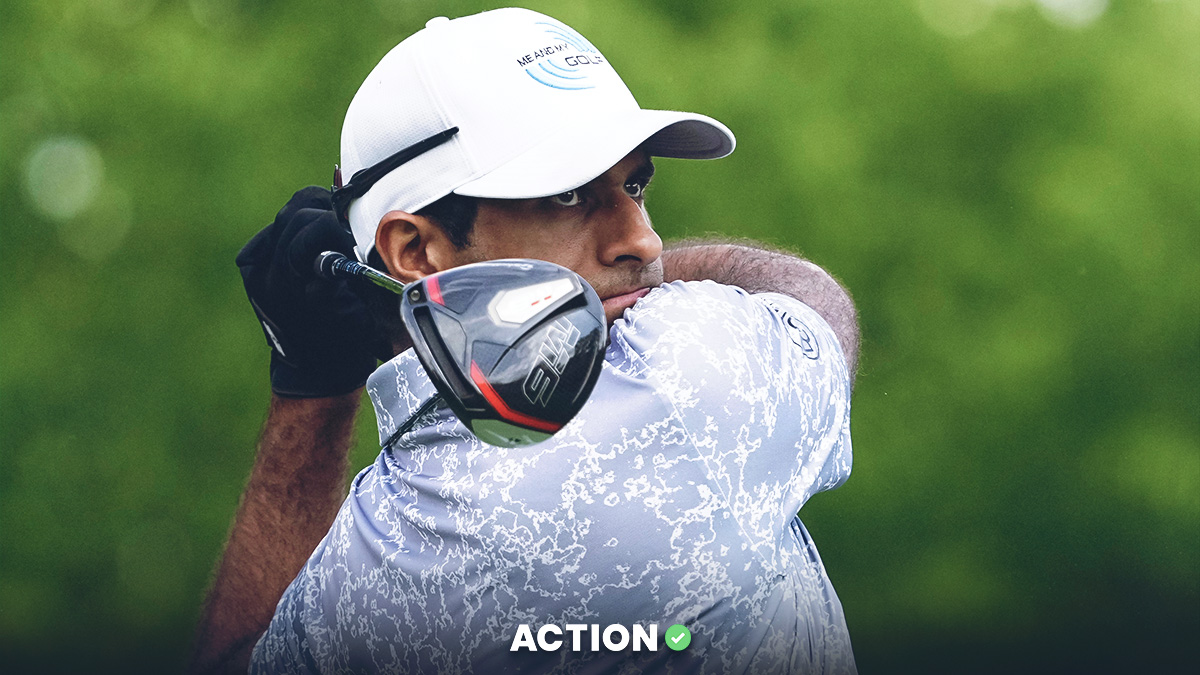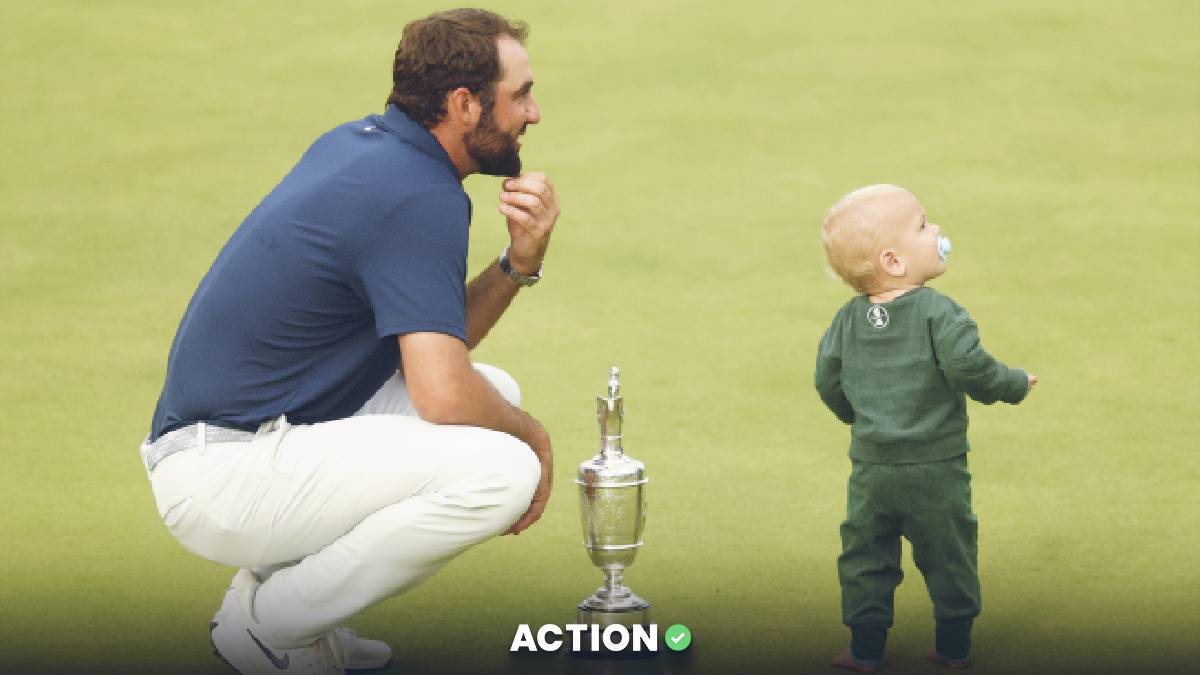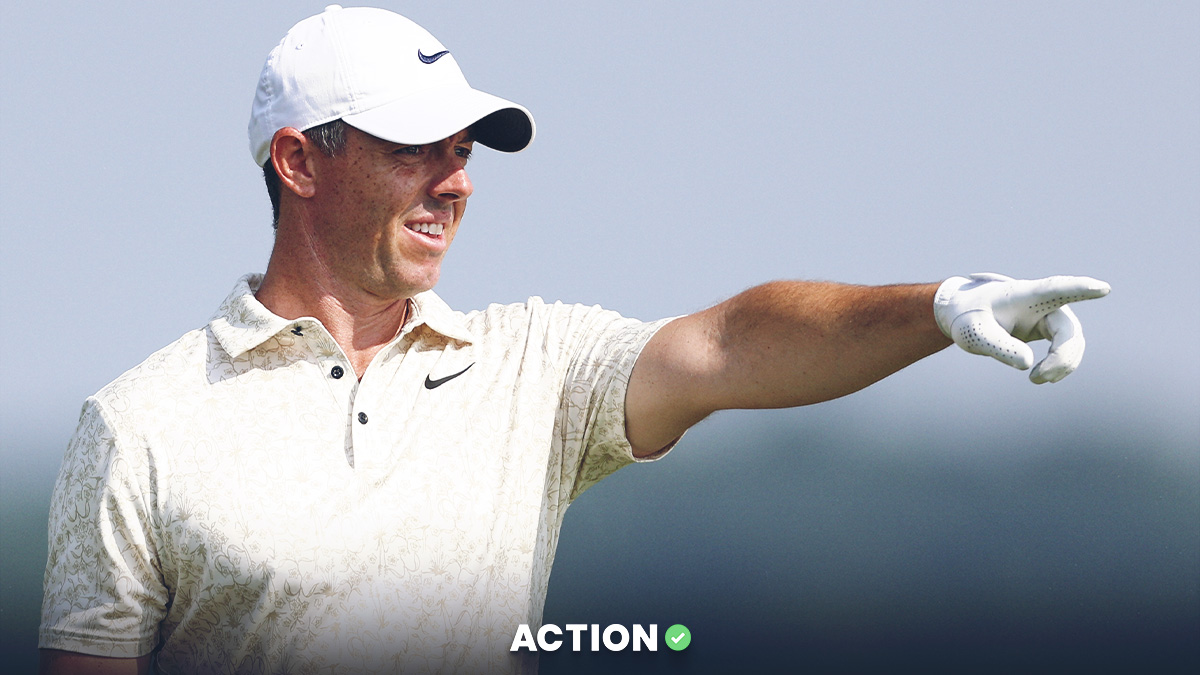- Ryder Cup team captains have been quiet about tournament strategy, but once the golfers tee off, there should be plenty for bettors to learn.
- Captains who flip the script mid-tournament and can't control team emotions may offer some betting opportunities.
SAINT-QUENTIN-EN-YVELINES, France — We’ve officially reached the point in Ryder Cup week where the captains and players are tight-lipped about any potential strategies, while the rest of us continue to think, rethink and overthink every potential scenario.
If you were seeking a betting edge for this week’s festivities, it was nowhere to be found here on Wednesday.
There were no controversies, no leaks, no tabloid fodder that could be construed as an advantage or disadvantage for either team.
U.S. captain Jim Furyk would only divulge that his players are learning the course, getting along with each other and ready to compete.
European captain Thomas Bjorn might’ve offered even less; when asked if playing all 12 players in Friday’s two sessions is part of his plan, he simply smiled and shrugged.
The truth is, those hoping to gain an informative edge during these few days before the competition begins aren’t having much luck — and shouldn’t expect to have any before the first tee shot goes airborne.
If you want an edge, it won’t happen until after the event has started.
That’s when the captains might offer a tell, to use poker parlance. They might break an unofficial rule of the captaincy, one that could be a hint at the early signs of panic inside the team room.
Here are some of those unofficial rules — and how breaking them could offer that betting advantage:
Don’t peak too early
This is a looooong week. Just as no player has ever won a major championship on a Thursday, no Ryder Cup has been won on a Friday.
There needs to be a balance of energy and excitement.
Too much, too soon could result in an inevitable crash later in the weekend. If players are performing their version of Ray Lewis’ intro dance after stiffing an approach to 10 feet on the first hole of the opening session, they just might be a little too wound up.
By the same measure, if players seem listless and lethargic, if they hit a couple of poor shots, go 1-down, and immediately look like they want to bury themselves in one of the green-side bunkers, that’s obviously not optimal, either.
Those who devalue the role of captains in the Ryder Cup tend to overlook the impact they can have on the vibe and tone within their teams. An effective captain will ensure his players aren’t too “up” or too “down” early in the proceedings.
After all, you can’t win a Ryder Cup on a Friday, but — like individual players on Thursday at a major — you can certainly lose it on that day.
Stick with the game plan
Perhaps the most obvious tell from a captain is if he goes off-script from the initial strategy.
Both Furyk and Bjorn have had more than a year to prepare for every potential scenario. They should have a keen understanding now, not just of their foremost plans, but contrary ideas to counter specific occurrences.
Case in point: If Player A practiced with Players B, C and D as potential partners, the captain shouldn’t call an audible and suddenly send him out with Player E.
“You don't want to fall behind and see your whole plan that you've laid out falling apart in that first session,” Bjorn explained on Wednesday.
The European captain then intimated that this is what happened two years ago, when Darren Clarke’s squad quickly trailed 4-0 after the opening foursomes session.
An even better example took place four years ago, when Tom Watson appeared overmatched by an astutely prepared Paul McGinley. Trailing by four on Saturday evening, Watson failed to channel his inner Ben Crenshaw and motivate the players; instead, he reportedly just implored them to “play better.”
As soon as we see a pairing of players who never practiced together, or a benching of a player who was thought to be earmarked for five matches, there should be a red flag signaling that the captain isn’t sticking to the plan he’d worked on for more than a year.
Weather the storm
There are world-class players on each side this week and chances are momentum will swing heavily in both directions at a few different points.
Like the skipper of a ship, one of the main jobs of a captain is to weather the storm — keep sailing in the right direction and don’t take on so much water that you’ll sink.
Paul Casey nailed it recently when he said of the role, “The captain can be pivotal, if and when he needs to be. If there’s a specific situation, we’ll need him to step up. Or he can be the best captain in the world and he won’t have to do much if the team is on cruise control. It’s a very fluid role.”
There’s a fine line in the way a captain can assess a downward turn during the week.
Get in the face of players and try to pump them up with a rah-rah speech and he’ll run the risk of pushing them away. Leave them alone to sort it out on their own and he’ll run the risk of being too hands-off.
There are going to be negative situations during the week. There will be momentum shifts and points lost and pressure felt. The captain who best addresses these situations is the one who can quickly weather that storm and turn the tide in his team’s favor.


